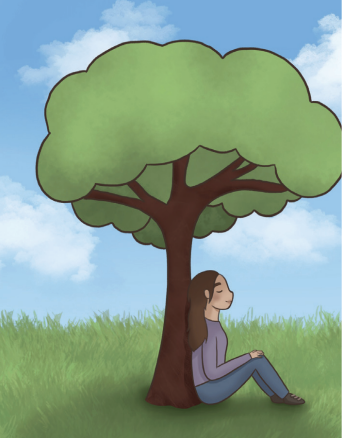Are you an academic weapon, or are you weaponizing academic achievement? As a prestigious college preparatory school, high standards for academic performance at Marlborough are both expected and justified in many ways. Students come to Marlborough in search of the excellent support and education that creates pathways to a bright future. Even so, I believ that the student body may have crossed the line into a culture that promotes ranking over relationships.
In an anonymous survey sent to the high school, 86% of the 58 survey respondents stated that they have felt academic competition within their friendships, and 64% stated that they felt the need to perform better academically than their friends. Additionally, 86% feel like the culture of the Marlborough student body has influenced their feelings/thoughts surrounding academic competition.
“Whether it be the number of hours studied or the number of key terms memorized, we are constantly comparing ourselves to each other, and it definitely grinds on the relationships at Marlborough,” one respondent said.
In other situations, academic competition within friendships can be a source of motivation and can lead individuals to work toward their fullest potential.
“Students with no friends receive lower grades and are less academically engaged compared to those with even just one friend,” Jaana Juvonen, a psychology professor at UCLA, reported alongside her colleagues in the journal Educational Psychologist.
Although it has the potential to have a positive impact on your academic performance, in my experience, academic competition can place immense strain and pressure on friendships in highly competitive environments like Marlborough. With a community composed of many high-achieving and motivated students, the desire to be better than your peers is only exacerbated by the importance placed on the college process. It is easy to begin to see your classmates and friends as competition for a spot at a prestigious university rather than a source of interpersonal connection.
“We go to a school that basically places our self-worth on what college we get into, the grades we receive, the things we achieve,” one respondent said, “I think it takes a lot of security and confidence in yourself to not compare other people’s success with yours.”
Although student-friend group dynamics are not the direct responsibility of the School, I believe that the intense levels of competition and importance placed on academic performance can be helped by teachers and administrators.
“I feel like Marlborough has a reputation for academic excellence, which puts an immense amount of pressure on students,” an anonymous survey respondent said. “I don’t mean to say that the pressure should be taken completely off, but I think if teachers were able to emphasize students’ wellbeing as more important than getting a good grade, it would help.”
Although challenging school work is necessary and valuable in order to emphasize the importance of hard work, curiosity and motivation, it is equally important to encourage a healthy mindset and approach to challenging school work and academic pressures.
“I think we can remind students that growth is a journey and doing well is just part of a learning process rather than an indication of who you are as a person,” Marlborough alumna and English Instructor Caitlin Newby said.
When students and teachers are able to recognize growth and achievement without supporting an unhealthy reliance on grades as a measure of their worth as a person, I believe that we will be able to create a healthier environment on campus and foster valuable relationships and connections.
“I think it is especially important to see your friends as allies and a form of support instead of simply your academic competitors,” Simone Schwarz ’25 said. “It’s important to maintain a distinction between your social connections and the pressures associated with academic achievement.”






